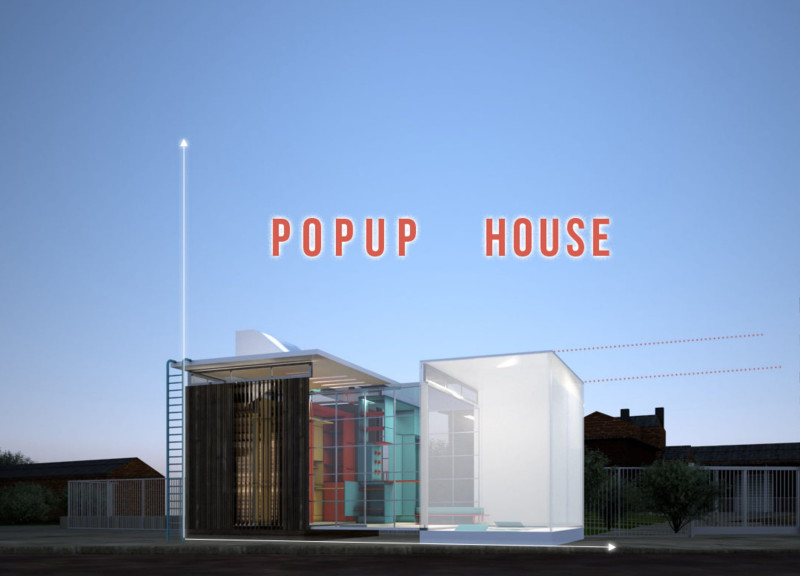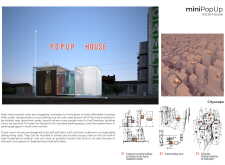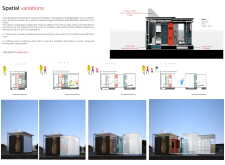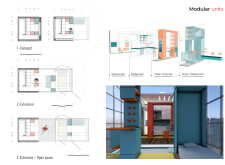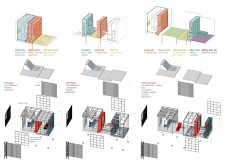5 key facts about this project
Sustainable Design Strategies
One of the distinguishing aspects of the miniPopUp micro-house is its innovative use of materials and design to enhance sustainability. The structure is primarily constructed from a steel frame, providing durability while maintaining a lightweight profile. Translucent polycarbonate panels are utilized for external cladding, allowing natural light to enter while offering privacy and energy efficiency. This choice of materials reduces overall energy consumption and promotes passive solar heating strategies.
The interior layout is equally unique, featuring fixed and sliding modules that accommodate various living needs. Essential service spaces, including a kitchen, sanitary unit, and storage, are integrated seamlessly, while additional modules can be slid in or out, transforming the space for different activities. This flexibility encourages a dynamic living experience, making it suitable for individuals or small families.
Urban Space Utilization
The design of the miniPopUp micro-house focuses on maximizing space usage in the urban environment. The compact structure is designed to fit within underutilized plots, such as parking lots or narrow alleyways. The rooftop area is dedicated to a garden space, which can serve recreational purposes or support urban farming initiatives. This feature not only enhances the livability of the unit but also contributes to urban greening efforts.
By incorporating water tanks for rainwater collection and advanced mechanical systems for air regulation, the micro-house aims to foster self-sufficient living. The architectural approach encourages sustainable practices, making it a viable option for eco-conscious urban dwellers.
The miniPopUp micro-house exemplifies modern architectural practices that prioritize efficiency, flexibility, and sustainability. For further exploration of the project, including architectural plans and sections, visit the project presentation to gain deeper insights into the design and innovative structural solutions.


